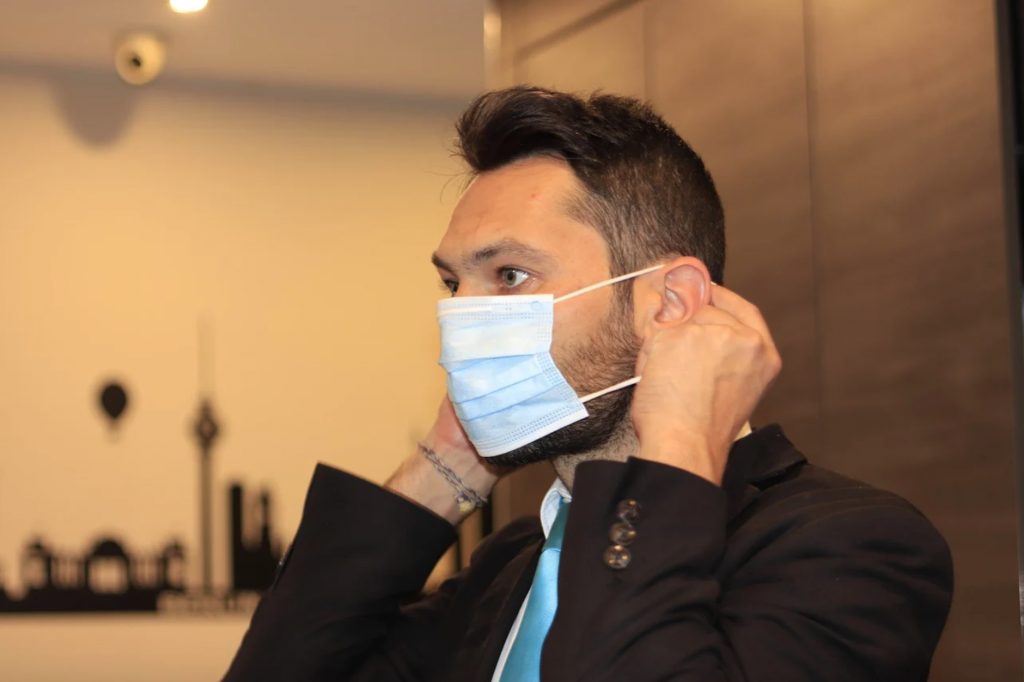How to prevent the spread of COVID-19
The spread of the new coronavirus is affecting corporate offices around the globe. According to the WHO, the coronaviruses are a family of viruses that can cause infections ranging from the common cold to more serious diseases. The virus is zoonotic, this means that they can be transmitted between animals and human beings.

Standard recommendations to prevent infection from COVID-19 include covering mouth and nose when coughing or sneezing, thoroughly cooking eggs and meat, regular hand washing and avoiding close contact with individuals showing symptoms of respiratory illness like coughing or sneezing. Health authorities are trying to control the spread of COVID-19 through strict measures that corporate offices must incorporate into their daily operations.
As many countries and regions of the world begin the slow process of reopening with the COVID-19 still on the loose, the WHO issued advice and guidelines on how to mitigate the risks of catching the virus from colleagues and coworkers in the office.
Research has demonstrated that the COVID-19 — which is transmitted mainly via small droplets that get into our noses, eyes and mouths — infects individuals more easily in crowded spaces with very poor ventilation. Some of the hardest-hit spots include areas and cities where individuals live close to one another, as well as hospitals, churches, nursing homes and some other places where people gather.
Read: Tips for Staying Physically and Financially Healthy During the Coronavirus Outbreak
The virus obviously needs people to transmit between. If individuals are in very close contact with one another and there is an infected person, it will most probably transmit to other individuals through those respiratory droplets.
In corporate offices, where many colleagues work in close quarters, the risk of spreading the new coronavirus is very high. To combat that, the World Health Organisation recommends that employees thoroughly wash their hands with soap very frequently during the work shift, particularly after contact with other co-workers or clients. To make this even easier, the World Health Organisation recommends that hand-hygiene stations for sanitising be installed in visible spots around the office.

There are 2 major transmission routes; via droplets, that we emit when talking, sneezing or coughing; and surface contact hand to hand or hand to surface. Most of the high touch areas in an office can be vectors for the spread of the coronavirus and the more colleagues touch them, the higher the risk of contamination.
Read: COVID-19: What Happens If You Get Coronavirus
Push out exit doors as well as coffee pots tend to have one of the highest concentrations of the virus. Scientists placed a sample of the virus on one single doorknob in a corporate office, and the first area that was contaminated was actually the coffee break-room. Within 4 hours the virus was detected on more than forty per cent of the colleagues and commonly touched objects. It is advisable to wash hands regularly and the use of hidroalcoholic gel at the main entrance of the office as well as in the coffee break room.
What can be done specifically?
Limit surfaces that workers need to touch: doors do not require handles and can swing open both ways by simply pushing them with our shoulder or foot.
Embrace technology: design an office that embraces collaboration technology and remote working conditions. If you promote pilot programs that help workers become more efficient at working from home a few days per week, they will also be much better equipped to work remotely on days they are feeling unwell. Embracing technology also means implementing any measures that innovative technologies allow us for the early detection of COVID-19, such as incorporating thermal cameras or other body temperature monitoring solutions for the early detection of positive cases.

Pick furniture that is easier to clean: if you are a new parent or if you have a pet, you already know the importance of investing in furniture that is easy to clean. Apply the same idea to your office space. In several offices, third party cleaning crews come in at the end of the week or every day to clean. Thus, anything you can do to make their job more effective will benefit your colleagues’ health.
